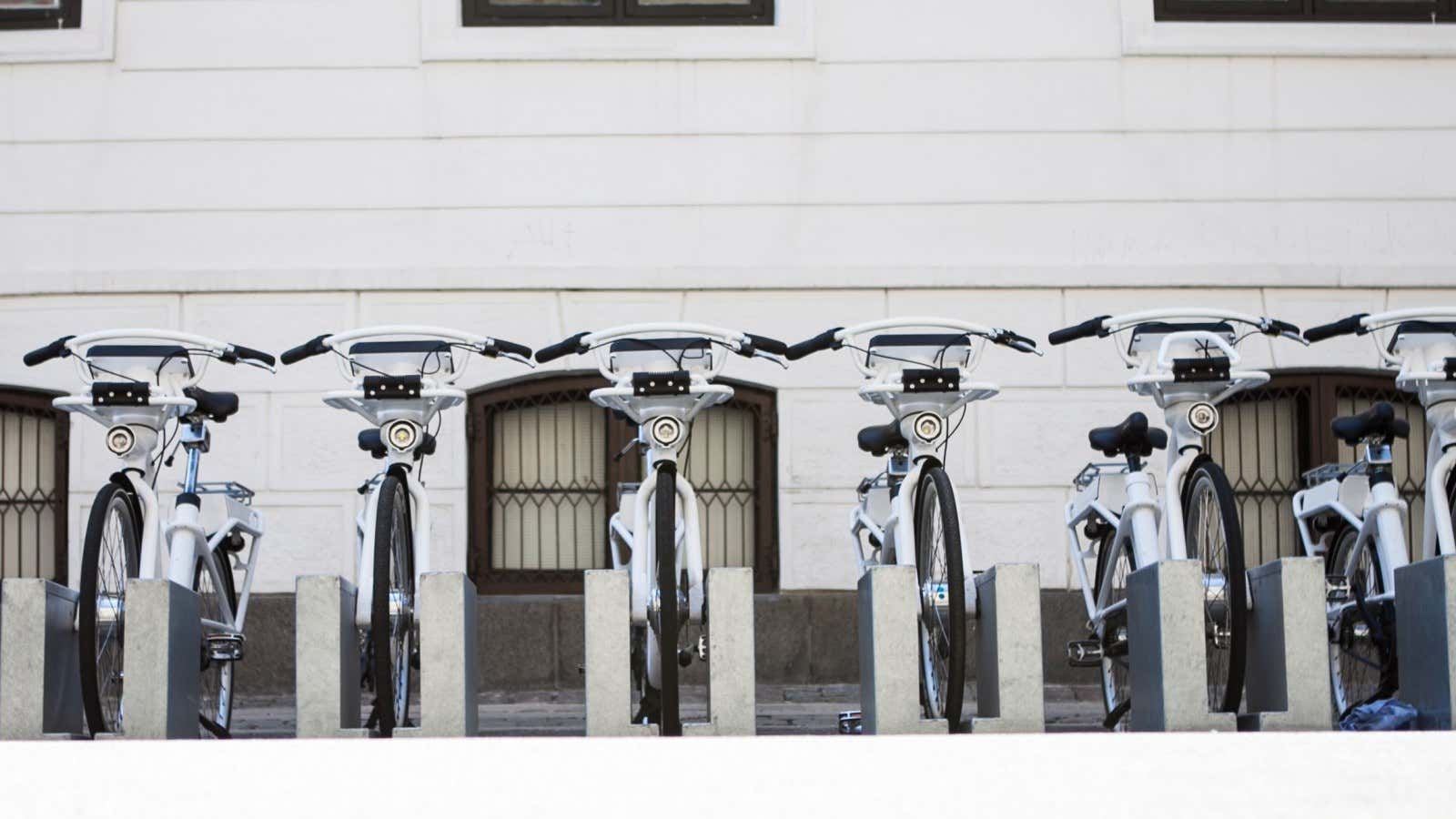In 2013, Copenhagen—a city of ebullient cyclists—launched the mother of all city bike schemes. Its white bikes were fitted with motors and GPS-enabled tablets—expensive, but designed for a place whose people and visitors truly believed cycling was the best way forward.
Now the city that pioneered its first shared bikes in 1995 is facing a stark possibility: no bike share scheme at all.
The Danish capital is embroiled in a battle with the company that said it could deliver the fancy new bikes and has so far failed to do so. The collapse of the deal could mean millions in lost krone, and the termination of a trailblazing scheme for shared urban cycling that was emulated in cities around the world.
Gobike, the company that won the contract to supply the city with bikes in 2012, should have delivered 1,860 of them by now, but has only managed to make and install 424. Its apparent inability to fulfill the order has led the city to issue an ultimatum: Deliver the remaining bikes—almost 1,500 of them—before the end of the month, or the project will be scrapped.
Torben Aagaard, Gobike’s CEO, has said that the company will try to deliver the bikes in time (link in Danish). In a written statement sent to Quartz, he said the company was “working hard on a solution that can get the city bikes onto Copenhagen streets. We think we can do it.”
The alternative is bleak, both for Gobike and for Copenhagen’s city bike future. The previous bike-share scheme—which used what one blogger nostalgically called “the goofiest bicycles in history”—was discontinued in 2012. If the company goes bankrupt, a possibility raised (link in Danish) by the Danish news organization DR, or fails to deliver, then the 424 bikes that are on the streets now will also be removed.




